Semiconductors
-
Can AI Make Critical Communications Chips Easier to Design?
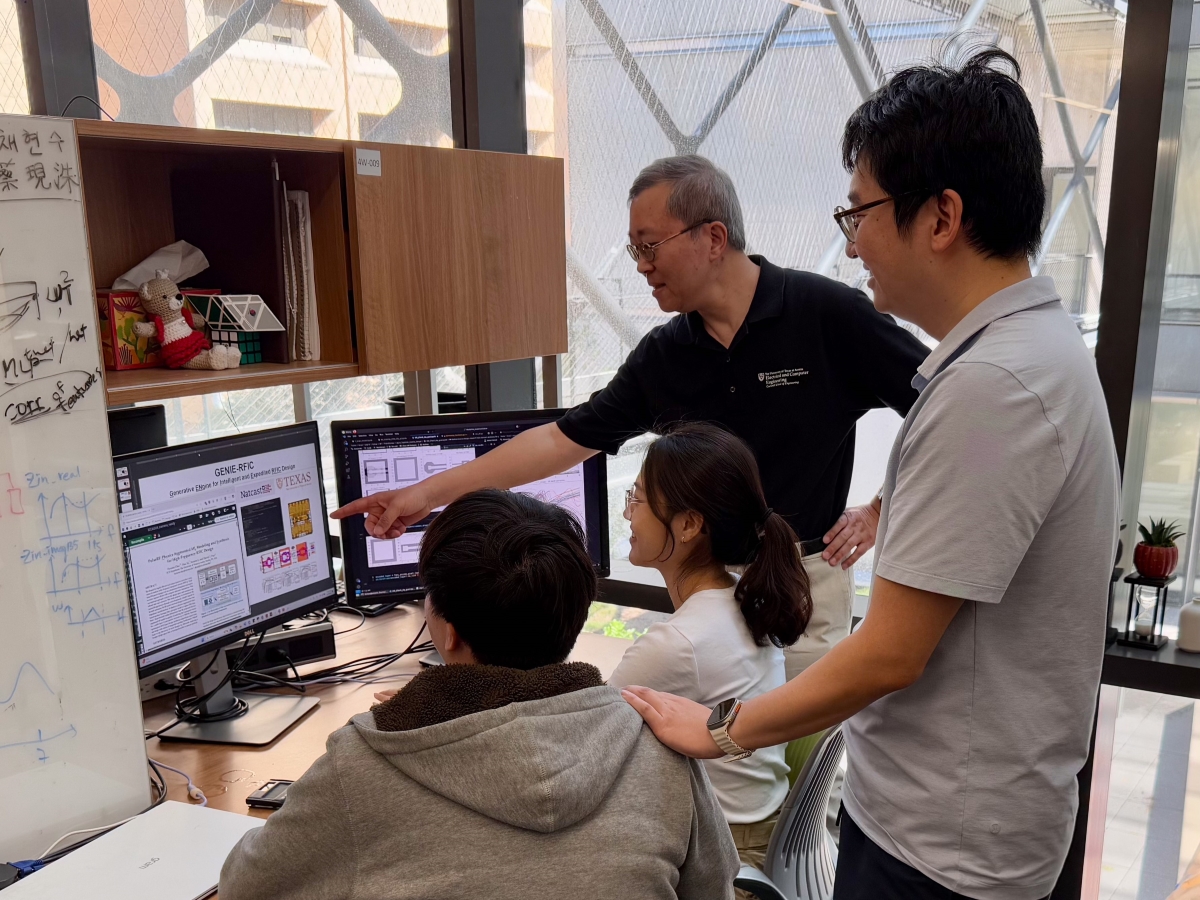
A multi-university team with heavy involvement from industry leaders plans to infuse artificial intelligence into the design process for radio frequency integrated circuits to reduce the difficulty of making these important chips.
-
Chips Ahoy
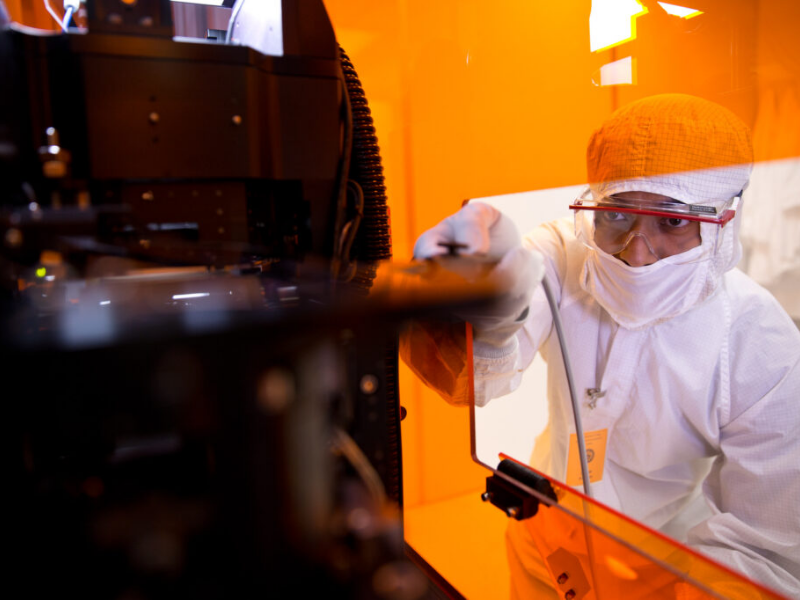
Texas is the capital of the U.S. semiconductor revolution and UT the engine behind it.
-
Texas Engineers Part of Huge NSF Semiconductor Program
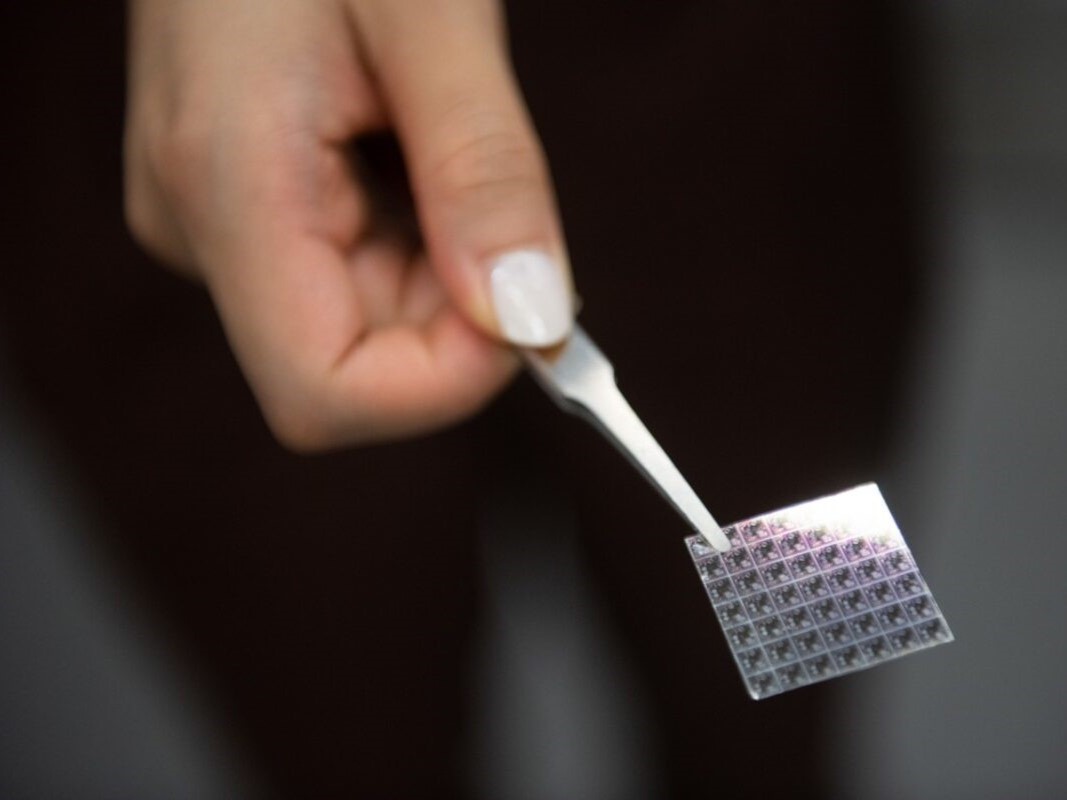
Texas Engineers will develop next-generation semiconductor technologies as part of a collaboration of the National Science Foundation and leading industry companies.
-
UT Awarded $840M To Build Microelectronics Manufacturing Center, Advance U.S. Semiconductor Industry
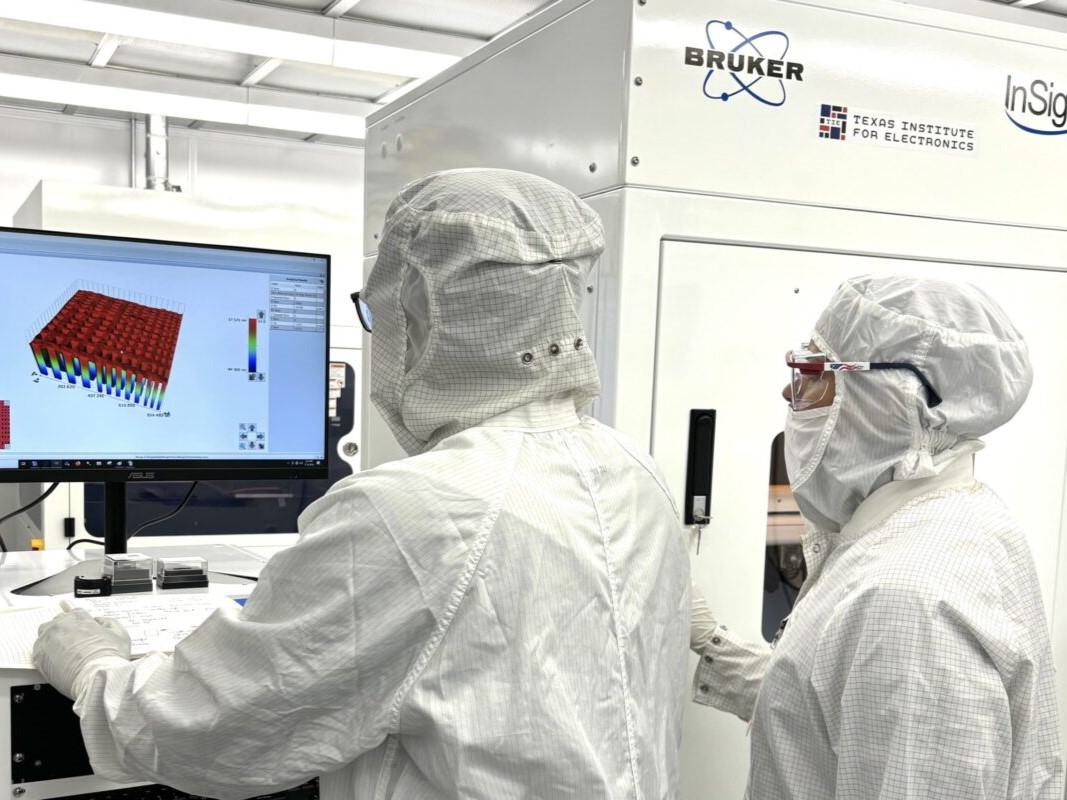
The Texas Institute for Electronics (TIE) at The University of Texas at Austin has been selected to engineer the next generation of high-performing semiconductor microsystems.
-
UT, ACC, Texas Institute for Electronics to Launch Semiconductor Training Center

A new partnership between The University of Texas at Austin, Austin Community College District and Texas Institute for Electronics (TIE) will make Central Texas a premier hub for comprehensive workforce development that will fuel the needs of America’s semiconductor industry.
-
New Semiconductor Master’s Program Will Offer Hands-on Experience in Rapidly Growing Industry
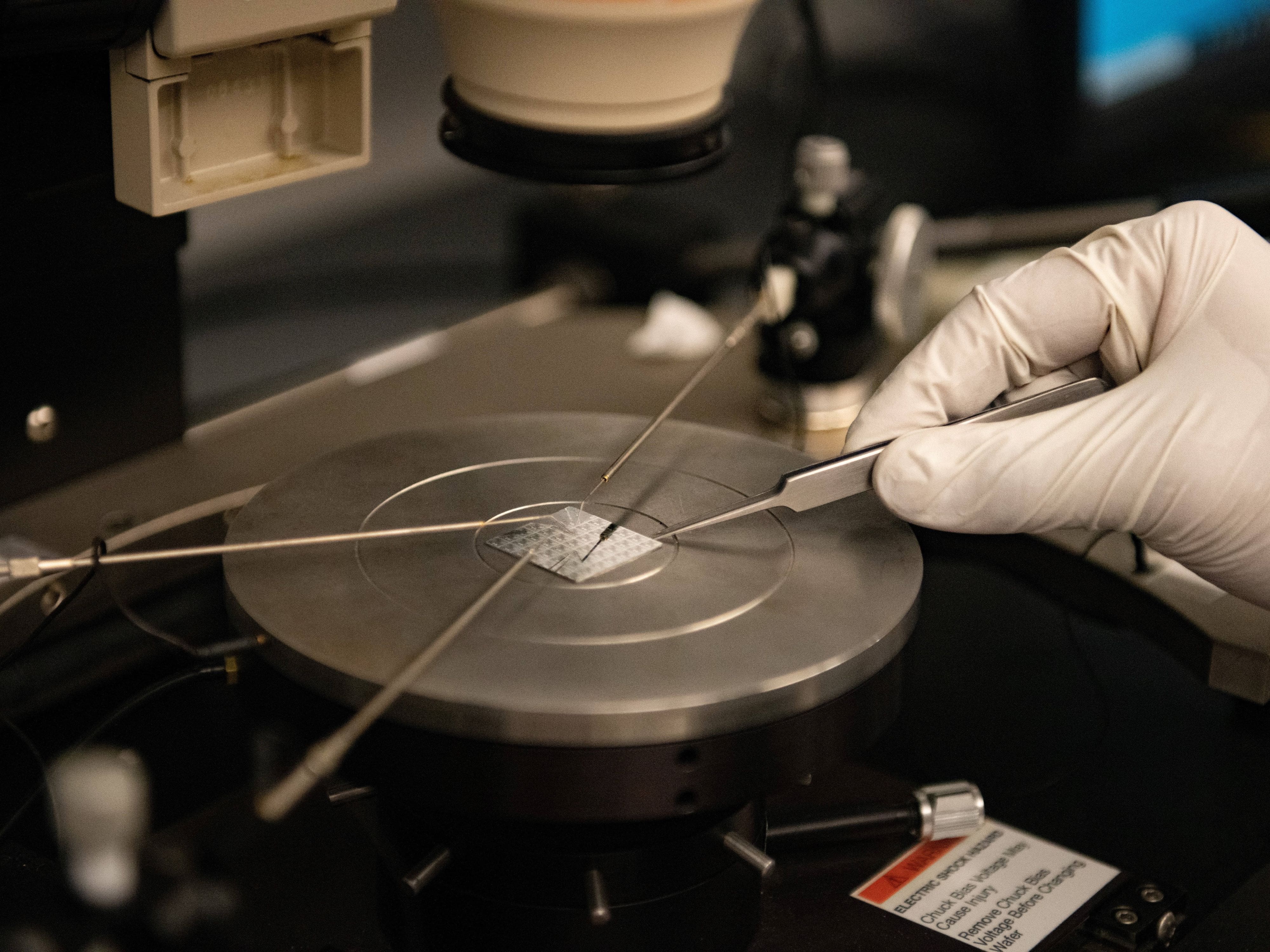
A new master’s degree program at The University of Texas at Austin aims to help fill demand for semiconductor scientists and engineers and give students a chance to lead the next wave of innovation in the booming semiconductor industry.
-
Texas Institute for Electronics and Infleqtion Launch Quantum Manufacturing Center of Excellence
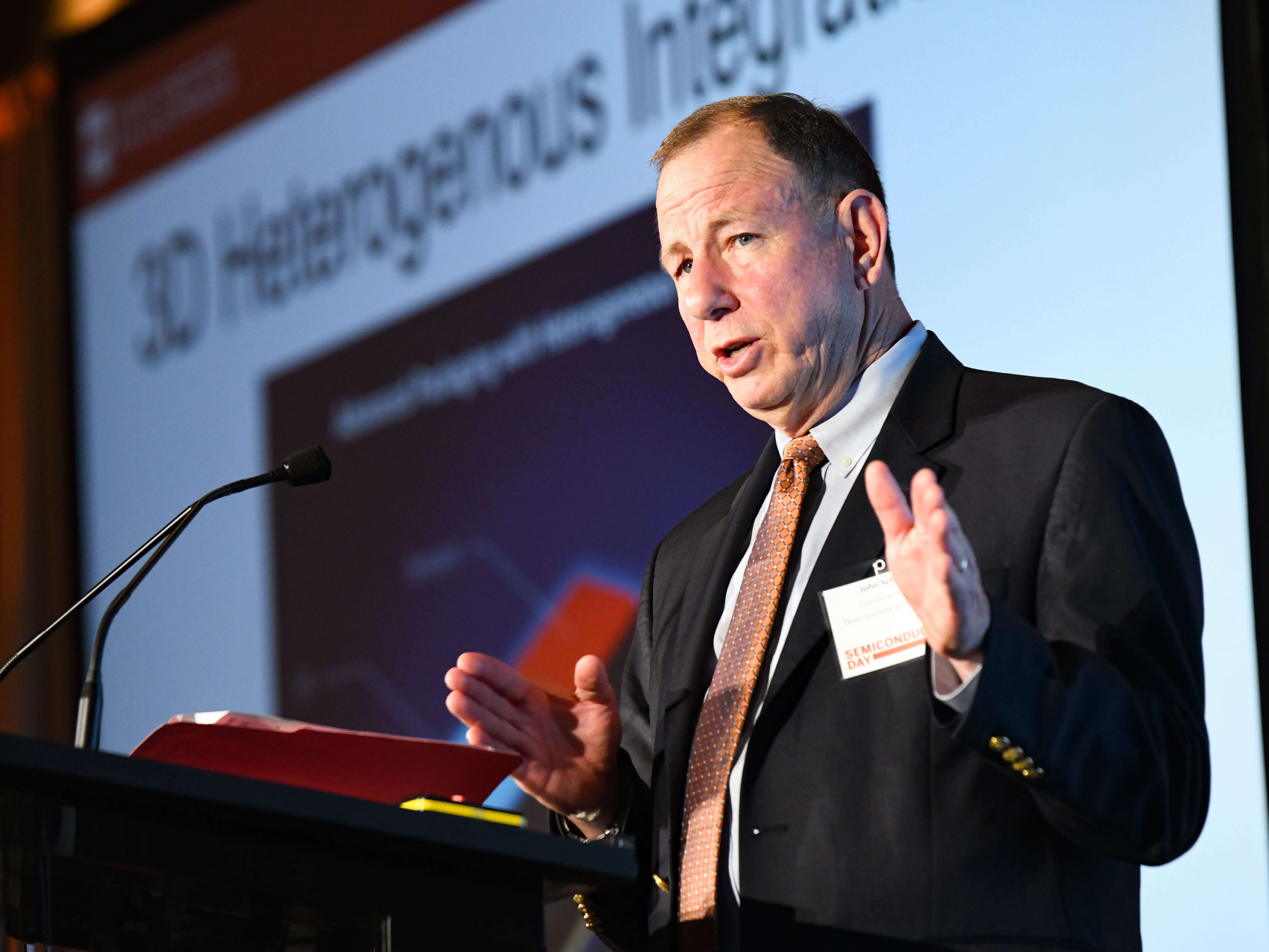
The University of Texas at Austin and Infleqtion, a global quantum technologies company, have signed a memorandum of understanding to develop a new center of excellence for quantum manufacturing. With the recent opening of its flagship corporate office in Austin, Infleqtion will work with UT’s Texas Institute for Electronics (TIE), collaborate with the University’s faculty experts in photonics and quantum technologies, and draw upon its world-class facilities to scale domestic manufacturing capacity for quantum-enabled products in areas such as energy, navigation, defense, and health care.
-
Texas Engineers Land Semiconductor Grants Through CHIPS Act-Backed NSF Program

A pair of Cockrell School research teams are part of a massive semiconductor grant program from the National Science Foundation that includes funds from industry leaders and the federal CHIPS Act.
-
A Texas Semiconductor Boom on the Horizon
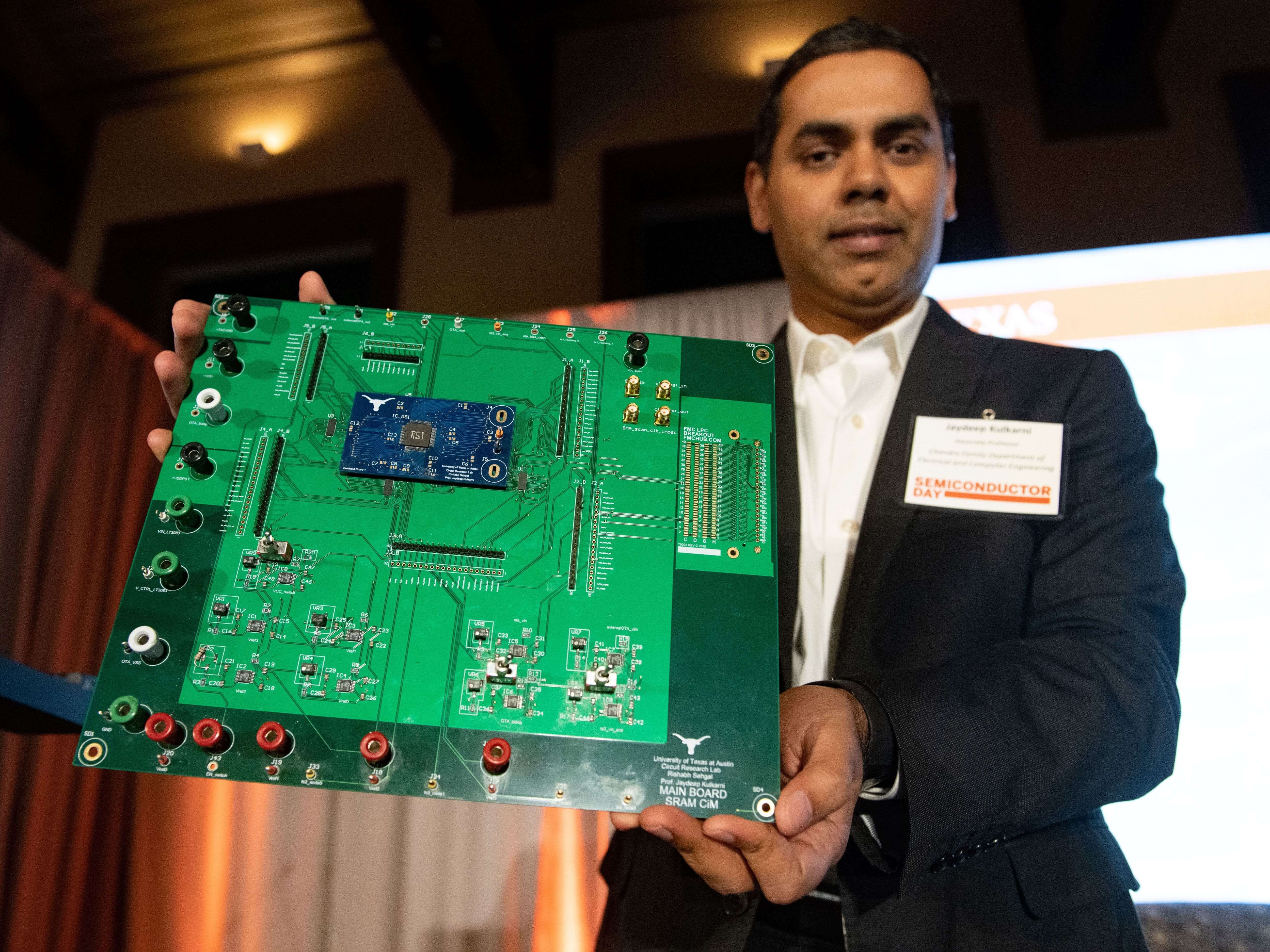
In the years since the COVID-19 pandemic crippled the global supply chain for chips that power everything from video games to cars to medical devices, semiconductors have been atop the national policy agenda. These shortages inspired a flurry of legislation, most notably the federal CHIPS Act, that aimed to "re-shore" semiconductor manufacturing in the U.S.
-
UT and Samsung Partner to Develop Talent Pipeline for Texas’ Semiconductor Ecosystem
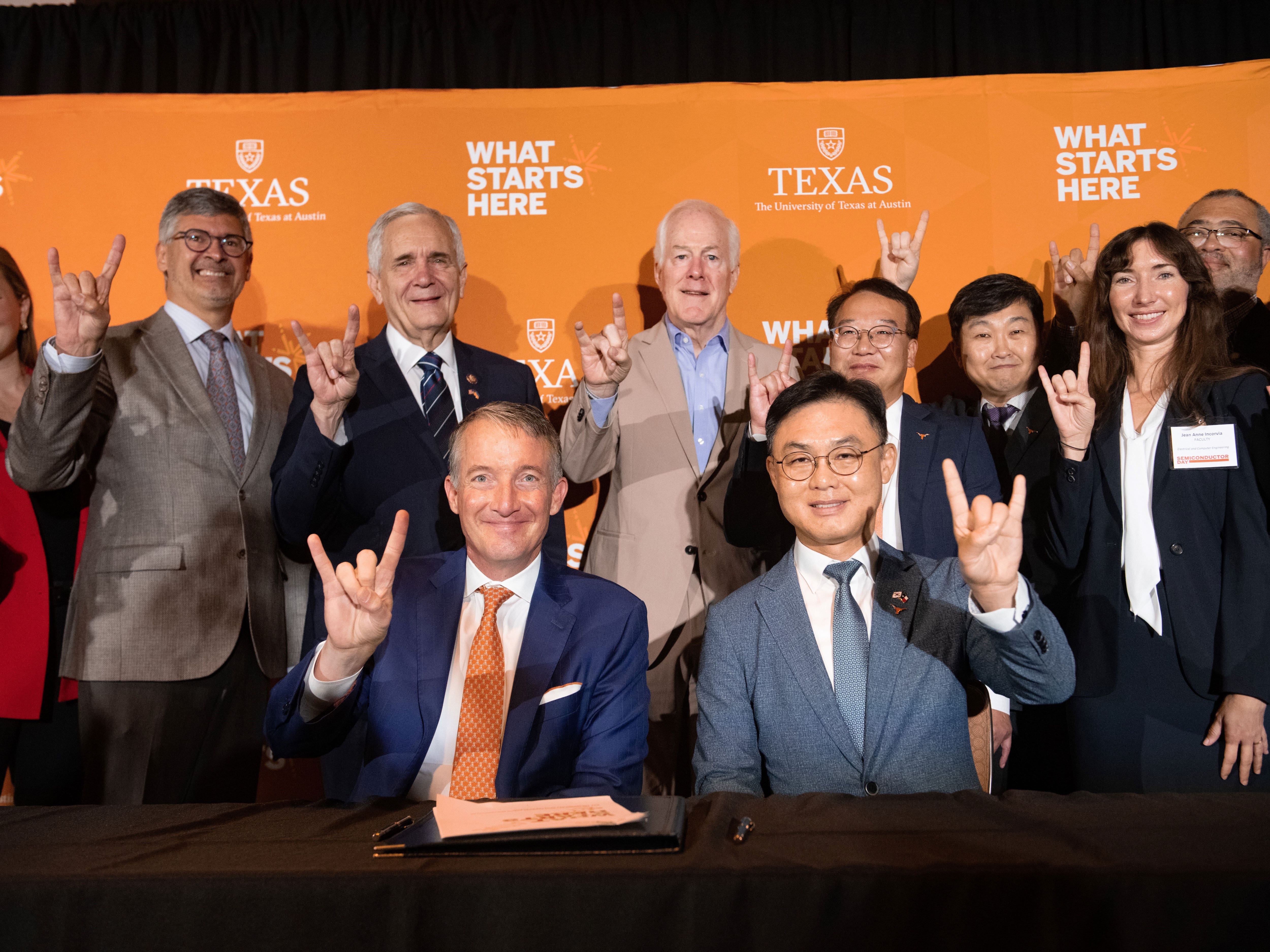
Samsung Electronics and The University of Texas at Austin are partnering to develop the talent pipeline to support the growing semiconductor ecosystem in Central Texas.
-
The Present and Future of Computing Get a Boost from New Research
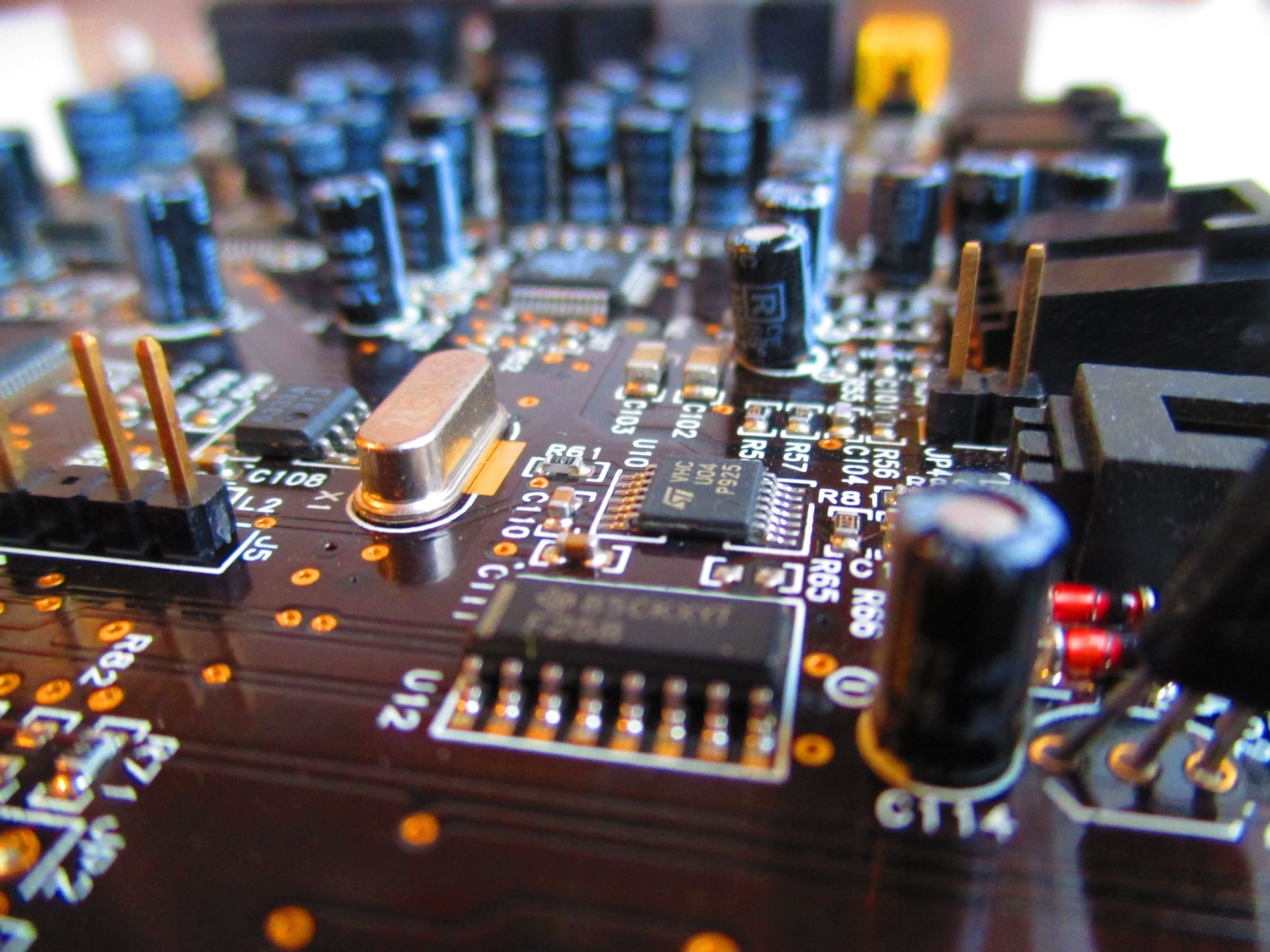
The world's computing needs have grown exponentially in recent years due to an explosion of technology. To meet the needs for the next technological leap, the scientific community is working to improve current processing capabilities and simultaneously develop entirely new computing methods.
Two new papers from the research group of Jean Anne Incorvia, a professor in the Cockrell School of Engineering’s Chandra Family of Electrical and Computer Engineering, aim to contribute to both of these scientific needs. Together, they offer improvements on current semiconductor technology as well as a nimbler building block to the next generation of computers that think like the human brain.
-
Texas Institute for Electronics Would Help Restore U.S. Chipmaking Leadership
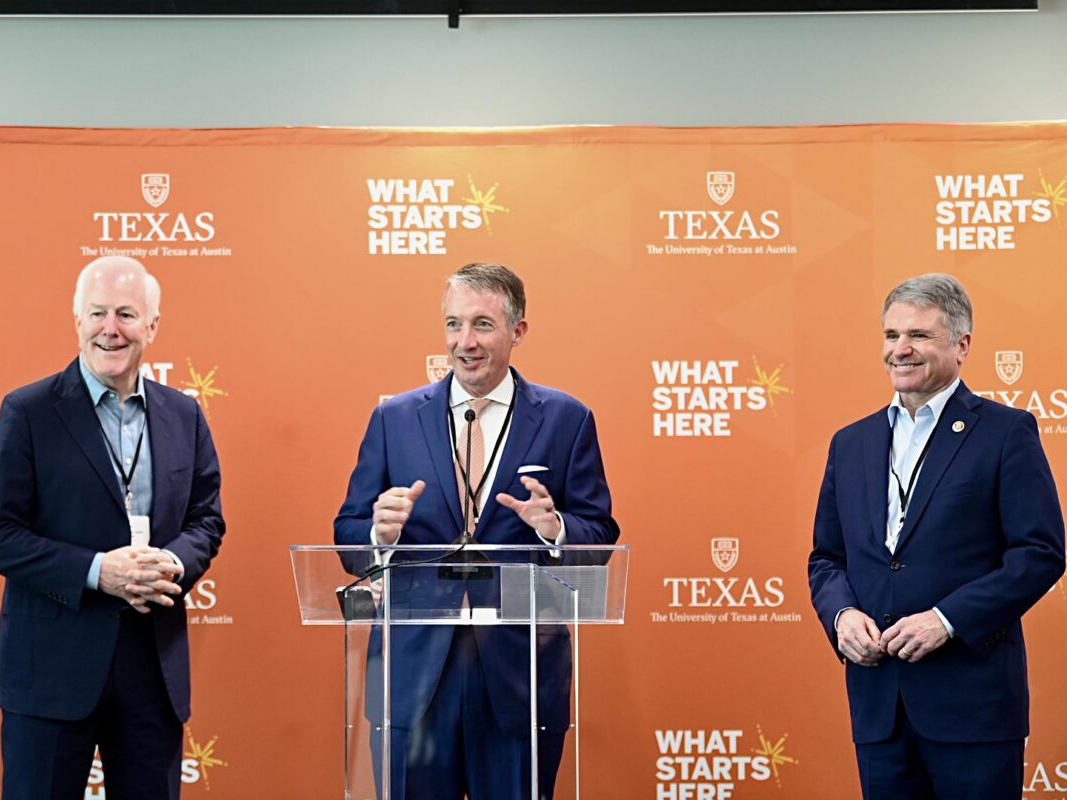
With semiconductor devices and systems now affecting all aspects of daily life, demand for such technologies has soared in recent years. But with 75% of microchip production based in East Asia, America’s over-reliance on foreign manufacturers leaves our supply chains vulnerable and threatens our long-term economic competitiveness and national security.
-
Could a New 2D Material Allow Semiconductors to Keep Getting Smaller, Stronger, Better and Faster?
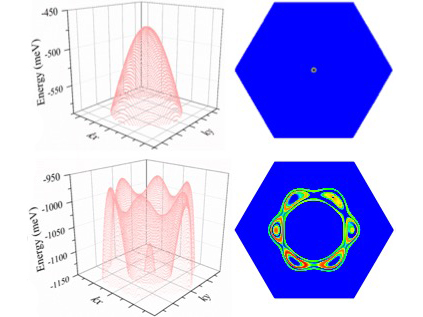
Not everything is bigger in Texas — some things are really, really small. A group of engineers at The University of Texas at Austin may have found a new material for manufacturing even smaller computer chips that could replace silicon and help overcome one of the biggest challenges facing the tech industry in decades: the inevitable end of Moore’s Law.
-
Measurement of Semiconductor Material Quality is Now 100,000 Times More Sensitive
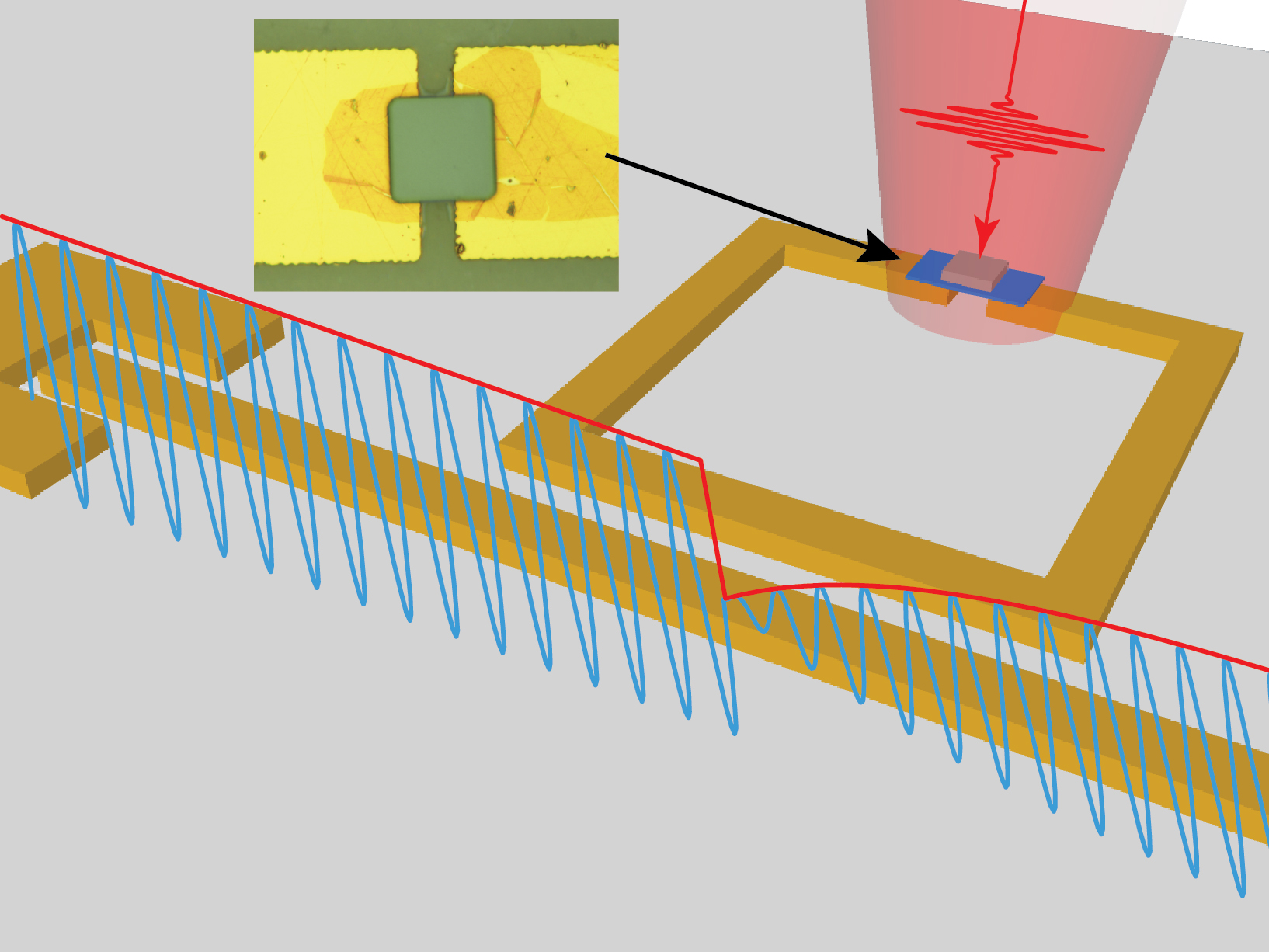
The enhanced power of the new measuring technique to characterize materials at scales much smaller than any current technologies will accelerate the discovery and investigation of 2D, micro- and nanoscale materials. Being able to accurately measure semiconductor properties of materials in small volumes helps engineers determine the range of applications for which these materials may be suitable in the future, particularly as the size of electronic and optical devices continues to shrink.
-
New Semiconducting Crystal Rivals Diamond for Heat Conductivity
The need for faster and smaller electronics has resulted in microelectronic components that produce progressively more heat. Thus, heat dissipation is an important issue, and one solution for cooling is to develop novel semiconducting materials with high thermal conductivity.
-
Molecular Imprints, a Company Founded by Cockrell School Professors, Reaches a New Milestone with Canon Inc.
Molecular Imprints Inc., founded in 2001 by Cockrell School of Engineering professors S.V. Sreenivasan and Grant Willson, recently announced that Canon Inc. will purchase its semiconductor imprint lithography equipment business. Created at The University of Texas at Austin, Molecular Imprints’ innovative technology is the result of extensive research conducted at the Cockrell School and is a successful example of how UT Austin ingenuity is shaping the future of the nanomanufacturing industry.
-
Nanoelectronics Center at UT Austin Receives $7.8 Million Award
The Semiconductor Research Corporation (SRC) and the National Institute of Standards and Technology (NIST) awarded The University of Texas at Austin a five-year, $7.8 million nanoelectronics award.
-
C. Grant Willson Wins Japan Prize for Innovative Semiconductor Materials
C. Grant Willson, professor of chemical engineering and chemistry at The University of Texas at Austin, has won the Japan Prize, an international award similar to the Nobel Prize, for his development of a process that is now used to manufacture nearly all of the microprocessors and memory chips in the world.







